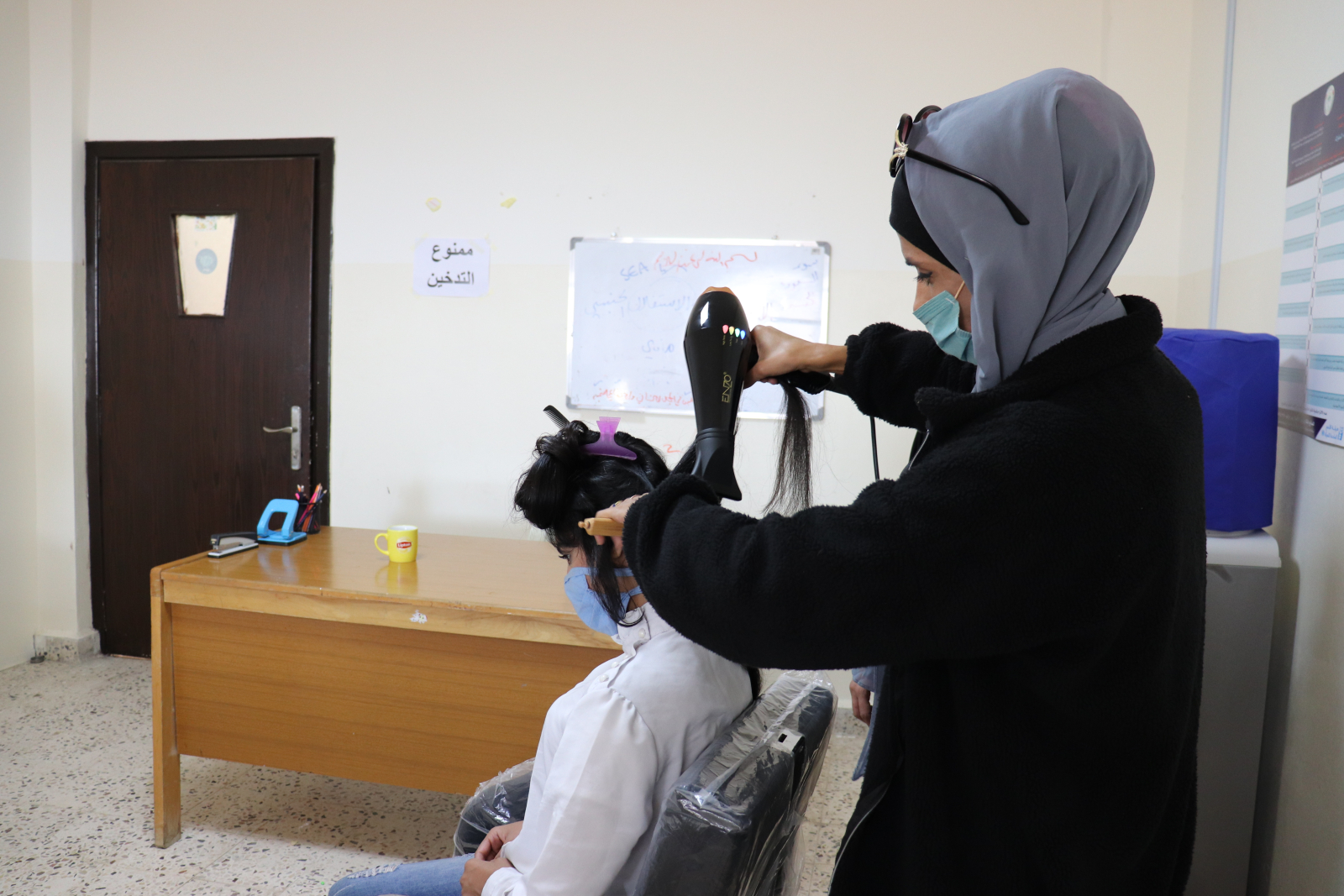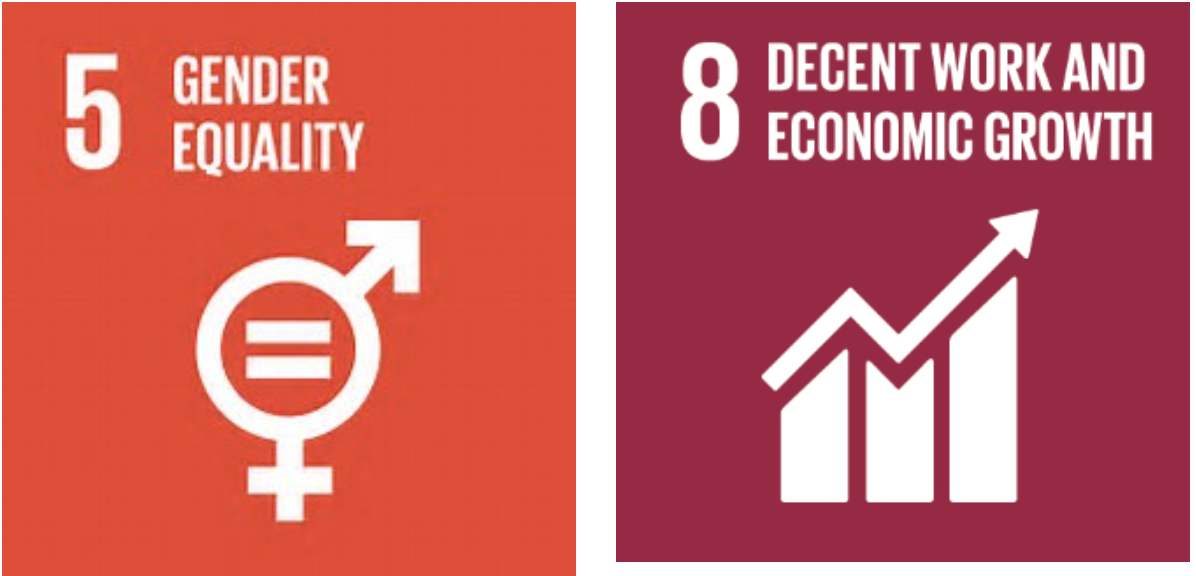Available in Arabic here.
Date:
Wijdan Al-Abbadi, 38, was born and raised in Iraq Al-Amir, a town in the municipality of Amman, Jordan. With her 18 years of experience as a beautician, she aptly leads the beauty training at the Oasis Centre, encouraging other women in her community to participate in the labour force in order to gain financial and social independence. The Oasis model for women’s resilience and empowerment was developed by UN Women and the Ministry of Social Development with significant funding and contributions from the European Union, including in the model’s extension to community centres and related policy dialogues.

“Despite the usual customs in my community, my family encouraged education and work. However, I failed the General Secondary Education Certificate Examination (Tawjihi) in 2000, which left me at home for a year. I wanted to work but was unsure which career path I should follow.
Then, a neighbour told me about an opportunity to take training courses on beauty and sewing in a community development centre. I was more interested in the beautician training, so I applied in 2003. During those six months, I worked very hard in order to be able to go out and work and live decently. I graduated first of my class and then I practiced my career for 11 years in a number of beauty salons. After that, I opened my own [after] I applied for a loan and received some aid. The business was successful at the beginning, but financial difficulties led to the closure of my salon in 2017. I continued to work from my home to pay off my debts and came across the opportunity to work as a trainer at the Oasis.
Rejoining the Oasis was a new opportunity for me, as it was my chance to become a trainer. At first, I was nervous about teaching as I had only dealt with customers, not students, so I was nervous about presenting and teaching. Over the course, I have grown stronger as a trainer and a person. My experience at the Oasis taught me to be more independent and to be more responsible. Before, I felt I did not have the right to speak up, but now as a teacher, I can point out whatever I feel is wrong. As a businesswoman, I felt stronger and more confident and my words carry weight.
One of the biggest advantages of the Oasis is that it is a place of practical learning. We are provided with the necessary tools that equip us with hands-on learning, which is key to finding a career. I have seen many women enter the beauty sector, and I highly encourage them to do so. Even if one lives in an environment that forbids her to work outside of her home, you can work from home and contribute to the household without having to leave it.
By working, women can help provide for their family, build their character and improve the education of their children. As a woman becomes stronger, she can provide both financial and moral support. There are many opportunities out there, and rewards for your hard work.”

Wijdan Al-Abbadi, 38, is a trainer in the beautician sector at the Oasis Centre in Iraq Al-Amir, Jordan, where she trains other women and encourages them to gain financial and social independence.Her work contributes to achieving Sustainable Development Goal (SDG) 5 on gender equality and women’s empowerment, as well as SDG 8, which seeks full and productive employment and decent work for all. This work in host community Oasis Centres, implemented by UN Women and MoSD, is funded by the European Union under the EU Regional Trust Fund in Response to the Syrian crisis.
Available in Arabic here.